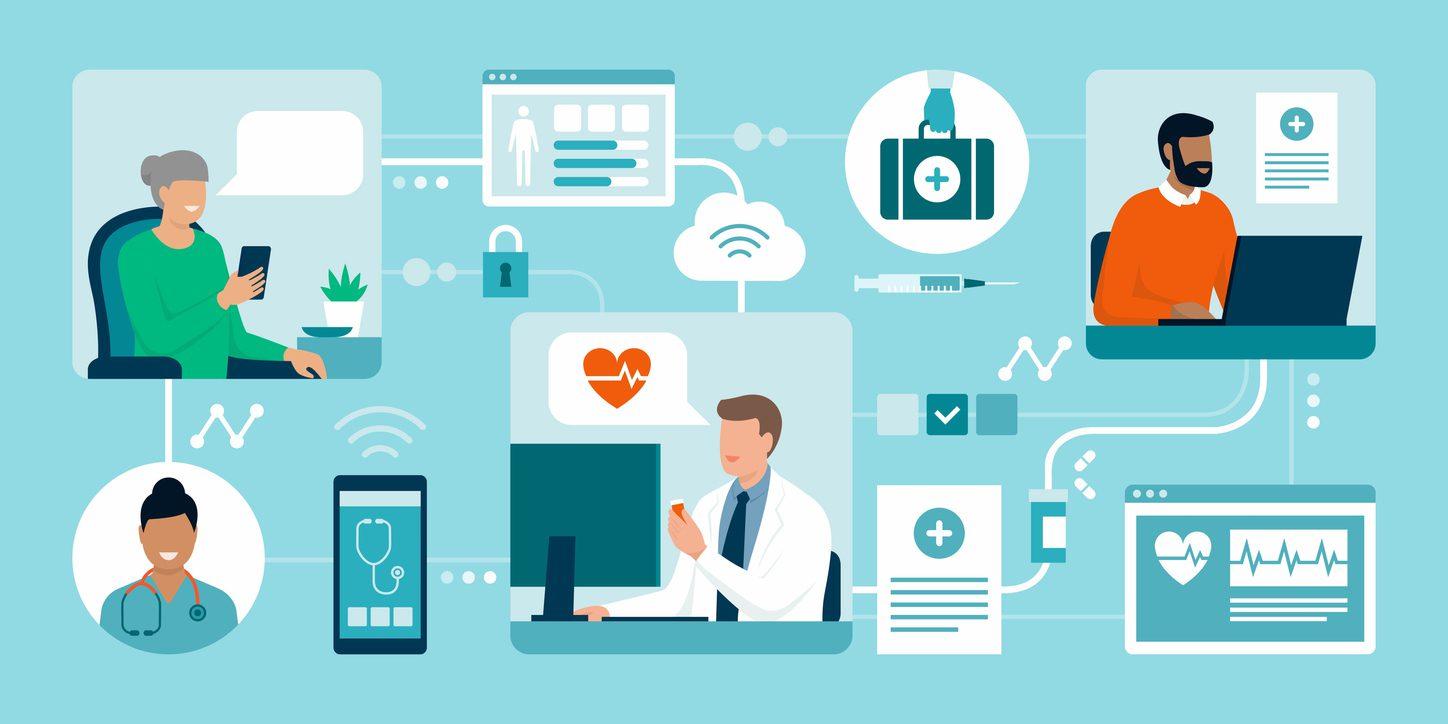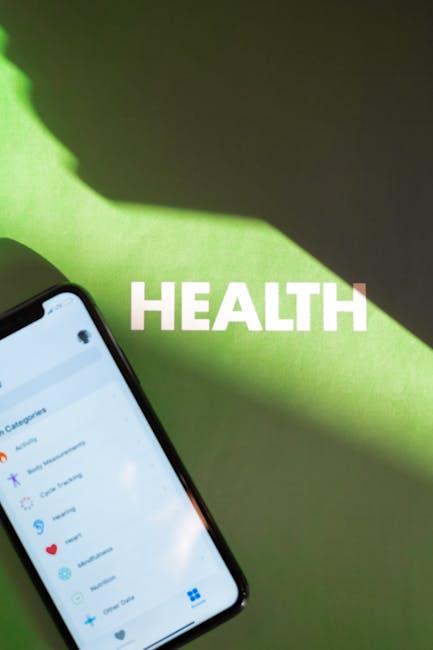In a world where smartphones double as personal trainers and watches monitor our heartbeats, the line between technology and healthcare blurs with each passing day. The advent of digital health tools, from wearable devices to telemedicine apps, promises a revolution in how we manage our well-being. But as these innovations gain traction, a pivotal question arises: can these digital marvels truly replace the traditional checkups that have long been the cornerstone of preventive care? This article delves into the heart of this modern dilemma, exploring the potential and pitfalls of a future where your next doctor’s visit might be just a click away. Join us as we navigate the intersection of technology and tradition, seeking to understand if the digital age can indeed redefine our approach to health.
The Evolution of Healthcare: Bridging Digital and Traditional Approaches
In the dynamic landscape of healthcare, digital tools are reshaping how patients and providers interact, yet the question remains: can they truly replace the age-old tradition of face-to-face checkups? Digital health tools offer unprecedented access to health data, personalized insights, and real-time monitoring, making healthcare more accessible and efficient. They empower patients with wearable technology that tracks vital signs, mobile apps that manage chronic conditions, and telemedicine platforms that provide virtual consultations. This digital revolution is a leap forward in preventive care and chronic disease management.
- Wearable Devices: Track heart rate, sleep patterns, and physical activity.
- Mobile Health Apps: Monitor diabetes, manage medications, and offer mental health support.
- Telehealth Services: Provide access to specialists and routine care from home.
However, the tactile and nuanced aspects of traditional checkups—such as physical examinations and in-person diagnostics—remain irreplaceable for comprehensive assessments. While digital tools enhance patient engagement and streamline certain aspects of care, the integration of both digital and traditional approaches seems to be the future. A hybrid model, blending the strengths of each, ensures that patients receive holistic care tailored to their unique needs.

Harnessing Technology: The Potential of Digital Health Tools
In recent years, the rise of digital health tools has sparked an intriguing debate about their potential to supplement or even replace traditional medical checkups. These tools, ranging from mobile health apps to wearable devices, offer a myriad of benefits that traditional methods sometimes struggle to match. They provide real-time data tracking, which empowers individuals to monitor their health metrics like heart rate, blood pressure, and glucose levels from the comfort of their homes. Additionally, AI-driven diagnostic tools can analyze symptoms and suggest possible conditions, potentially reducing the need for frequent in-person visits. This technological shift could lead to more personalized healthcare, catering to individual needs more efficiently.
- Accessibility: Patients in remote areas can access health services without the need for travel.
- Cost-effectiveness: Reduces the expenses associated with traditional checkups and hospital visits.
- Convenience: Offers the flexibility to monitor health conditions anytime, anywhere.
- Data-driven insights: Helps in making informed health decisions based on continuous data collection.
However, while digital health tools offer promising advancements, they are not without their challenges. Issues such as data privacy, the digital divide, and the need for medical professionals to interpret complex data are critical considerations. Hence, the ideal future may not see these tools replacing traditional checkups entirely, but rather enhancing them, creating a hybrid model that leverages the best of both worlds for comprehensive patient care.

Challenges and Limitations: Why Traditional Checkups Still Matter
While digital health tools offer innovative solutions for monitoring and managing health, they face several challenges and limitations that highlight the continued importance of traditional checkups. Personalized diagnosis is one such area where digital tools often fall short. Algorithms and AI-driven platforms can analyze data and provide insights, but they lack the nuanced understanding of a patient’s unique health history and the human touch that a healthcare professional offers. Emotional and psychological assessments are also best conducted in person, where non-verbal cues and empathy play critical roles.
- Technical Limitations: Digital health tools depend on technology, which can be prone to glitches, connectivity issues, and data inaccuracies.
- Data Privacy Concerns: The handling and storage of sensitive health information raise concerns about privacy and security, which are less of an issue in traditional settings.
- Limited Scope: Many digital tools focus on specific health metrics and may not provide a comprehensive overview of a person’s health.
- Access and Equity: Not everyone has equal access to digital tools due to socioeconomic factors, making traditional checkups more inclusive.
Moreover, regulatory standards for digital health tools are still evolving, meaning that not all tools meet the stringent requirements necessary to ensure safety and efficacy. Traditional checkups, guided by well-established medical protocols, continue to be a cornerstone of reliable healthcare.

Crafting a Balanced Approach: Integrating Digital Solutions with In-Person Care
In the evolving landscape of healthcare, the fusion of digital tools with traditional methods is reshaping patient experiences and outcomes. Digital health tools like mobile apps, telemedicine, and wearable technology are not intended to replace the fundamental human connection that comes with in-person care. Instead, they serve as complementary assets that can enhance and streamline the healthcare process. By leveraging these technologies, healthcare providers can offer more personalized, efficient, and timely care, ensuring that patients receive the attention they need both remotely and during physical consultations.
Advantages of integrating digital solutions with in-person care include:
- Improved accessibility and convenience for patients unable to frequently visit clinics.
- Enhanced data collection and monitoring through wearables, providing real-time health insights.
- Streamlined communication between patients and healthcare providers via secure messaging platforms.
- Potential for early detection of health issues through AI-driven analytics and remote monitoring.
As the healthcare industry continues to embrace innovation, the goal remains clear: to create a harmonious balance that leverages the strengths of both digital and traditional methods, ensuring comprehensive care for all patients.








